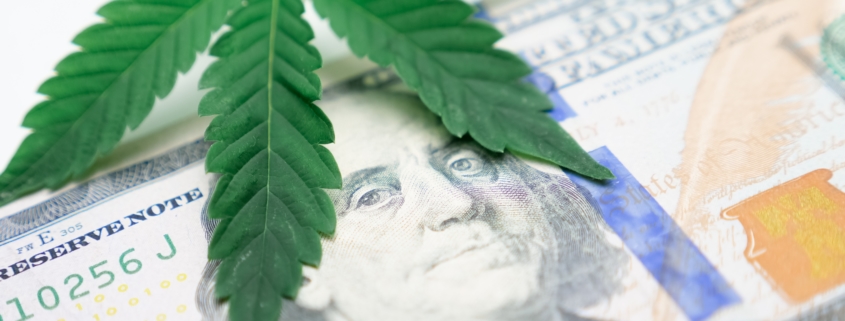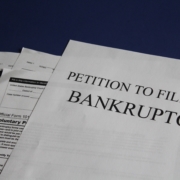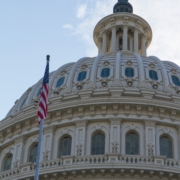In the Weeds on the SAFE Banking Act
In tax season of 2019, a legal cannabis grower walked a nerve-wracking 20 yards from the parking lot to a California government office to pay his state taxes—with a pile of $350,000 in cash. The illegality of cannabis at the federal level has largely shut cannabis businesses—legal at the state level—out of traditional banking. As a result, cannabis businesses operate on an all-cash basis, leading to cash payments to employees, vendors, professional service providers, utilities, and government entities. While this has been a boon to the armored transport and logistics industries, cannabis businesses striving to remain within the contours of the law find themselves bearing the considerable burdens of operating on an all-cash basis, racking up considerable overhead to protect large sums of cash from would-be thieves. Given the onus placed on cannabis businesses—and, arguably, neighbors wary of 24/7 armed guards—cannabis business surely cannot remain excluded from banking forever, can they? Enter the Secure And Fair Enforcement (SAFE) Banking Act of 2019
This Act would open the federal floodgates holding back a swollen river of cannabis money, allowing cannabis business to bank their money with traditional financial institutions. The SAFE Banking Act, cosponsored by a bipartisan group of 180 representatives, has already been approved for a U.S. House of Representatives floor vote after passing the House Financial Services Committee on March 28, 2019, with a 45 to 15 vote. On April 8, 2019, the House Judiciary Committee referred the bill to the House Committee on Crime, Terrorism, and Homeland Security, where it has not yet received a vote. A week later, companion legislation was reintroduced in the Senate. On May 9, the attorneys general of 33 states (along with Washington D.C. and four U.S. Territories) sent a letter to Congress to advocate for the bill’s passage, arguing that “the reality of the [cannabis industry] requires federal rules that permit a sensible banking regime for legal businesses.”
The SAFE Banking Act would provide safe harbor for financial institutions to accept money from “cannabis-related legitimate businesses” (“CRLBs”)—that is, cannabis businesses that are in compliance with the applicable state law regime—in that they would be immunized from adverse federal action, whether by federal regulators or prosecutors. The bill would also immunize funds derived from state-legal cannabis transactions from the federal money laundering statute. Finally, the bill also would immunize collateral interests held by banks in loans provided to the cannabis industry from asset forfeiture, making possible bank foreclosures on cannabis business assets, such as farms or other real estate.
The bill also goes beyond CRLBs to provide banking access to “service providers” to the cannabis industry. The bill’s definition of “service provider” is broadly worded to include any business that “sells goods or services” to a CRLB, and explicitly includes real estate professionals, lawyers, and “other licensed services”—e.g. CPAs. In particular, the bill would extend the safe harbor and money laundering exemptions to funds deposited by service providers in addition to CRLBs. In other words, the vendors and professionals providing services to the cannabis industry would also be allowed to bank money derived from their cannabis industry clients with financial institutions. This would be a financial security blanket for the notoriously risk-averse legal profession, although California lawyers have already obtained a measure of protection with the November 2018 amendment to California Rule of Professional Responsibility 1.2.1, which allows California attorneys to counsel legal California cannabis businesses, provided that they advise said business regarding federal illegality.
The House Financial Services Committee passed several amendments to the SAFE Banking Act that alter its scope. Representative Steve Stivers successfully proposed an amendment that explicitly included insurers of CRLBs as a class of businesses to which banks can provide financial services. Representative Ed Perlmutter also successfully proposed several amendments, the most significant of which broadened the definition of “financial services” in the bill to include armored car services and “money transmitting businesses,” which would presumably open the door to cannabis transactions via PayPal, Venmo, and Western Union.
Although the SAFE Banking Act’s House floor debate does not yet have a set date, the bipartisan support in the House, along with the support of a majority of the states attorneys general, suggests that it may pass the House. However, the Senate Banking Committee chair, Senator Mike Crapo, has openly stated his opposition to his committee’s considering the bill. However, legislative 180s on cannabis are not unheard of, such as former Speaker of the House and cannabis opponent John Boehner’s sudden support for cannabis legalization after joining the board of cannabis company Acreage Holdings. The SAFE Banking Act would provide relief for a cannabis industry eager to pay its employees and taxes electronically, and would also enervate financial institutions with the munchies for cash from the $16 billion legal U.S. cannabis industry. Although the legislation remains a possibility rather than a reality, the traction and bipartisan support the bill has received suggests that legalized banking for cannabis industry funds is a question of “when” rather than “if.” Regardless of its ultimate success, the SAFE Banking Act merits monitoring by the cannabis and financial sectors such that they can be prepared for the coming changes to their respective industries. In any case, the days of grocery bags full of cash as tax payments seem untenable in the long term.











